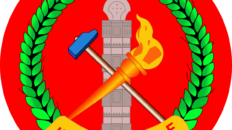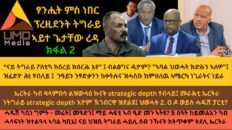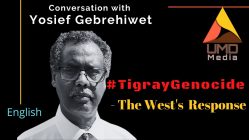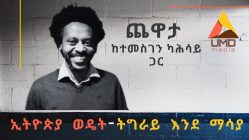UMD Media, January 14, 2025
Lidetu Ayalew, a prominent Ethiopian opposition leader and vocal critic of the government, is returning to Ethiopia after spending years in the United States for medical treatment, including surgery. Before seeking medical treatment in the United States, he had been imprisoned under Abiy Ahmed’s administration for seven months in 2020.
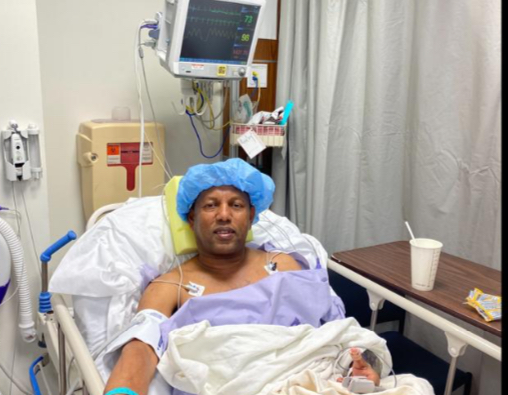
In a 24-page document distributed on Sunday, January 12, he declared:
“Even if my current health condition has not improved entirely, as I had attempted to explain two months ago, I have received the necessary medical assistance available to me at the moment. Therefore, since there is no compelling reason to stay any longer, I plan to return to my country within the next month. I have already purchased my travel ticket.
This return journey to my homeland may yield either positive or negative outcomes. Firstly, upon my return, like any other citizen, I wish to live my personal life while engaging with society. If possible, I will re-establish Ethiopian Democratic Party(a political organization disbanded by the government). If that is not feasible, I will work with other legal political parties, or if even that proves unattainable, I will continue the peaceful struggle individually. This is my aspiration.
Secondly, due to unlawful measures that might be taken by the government, it is possible that I may be temporarily or permanently removed from the field of struggle. I cannot predict the outcome with certainty. Whatever happens, we will witness it together in the future as the outcome will be decided by the Ethiopian “king” who says ‘My word is my signature!’
Reflecting on the past three years, ten of which I have unwillingly spent abroad, I extend my heartfelt gratitude to my relatives, friends, and comrades who supported me unconditionally. Your generosity, which has gone beyond material contributions, has demonstrated the value of social capital over economic wealth. I am deeply thankful for your unwavering support, which I cannot repay in kind. The best I can offer in return is to remain loyal to my word and my cause.
To those who have engaged with me and shared ideas during this time, please accept my sincerest thanks for your invaluable collaboration.
I acknowledge that my decision to return to Ethiopia might not delight many of my friends and may even cause distress to some. I understand your concerns and ask for your heartfelt forgiveness for any emotional harm this decision may cause. However, let me assure you that my decision to return is neither impulsive nor coerced. I have taken ample time to consider it from multiple perspectives and have made this choice with a clear mind, fully aware of its implications.”
This statement underlines his determination to return to his homeland and to continue contributing to his cause, regardless of potential challenges or consequences.
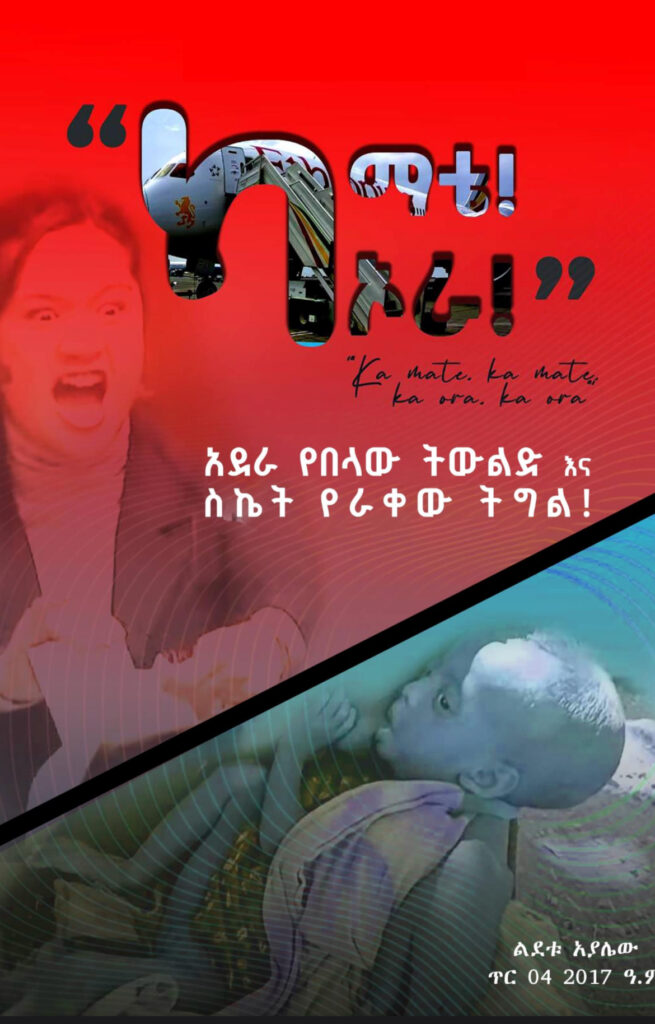
While his supporters eagerly anticipate his return, fears for his safety are mounting, given his contentious relationship with the Ethiopian government accused of committing political assassinations and other political adversaries. The situation has grown more alarming following a deeply disturbing call for his extermination.
US based Habtamu Tegegn, from the International Fano Coordinating Committee, recently made an inflammatory and chilling statement online , calling for the extermination of Lidetu Ayalew, his family, and even seven generations of his descendants. The incitement highlights the critical need for accountability in public discourse to prevent the normalization of political violence.
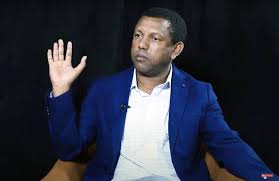
A History of Resistance
Lidetu’s political journey has been marked by his resistance to authoritarianism. During the Ethiopian People’s Revolutionary Democratic Front (EPRDF) era, he was imprisoned for his political activities. Despite these challenges, he has remained an influential figure in Ethiopian politics, publishing numerous books and booklets articulating his political ideas and proposals. He is regarded as the most prolific Ethiopian politician in terms of written works, with his publications addressing a wide range of ideological perspectives, a rarity in the country’s polarized political landscape.
Call for Transitional Government
One of Lidetu’s most controversial and bold initiatives is his call for the establishment of an all-inclusive transitional government to replace Prime Minister Abiy Ahmed’s administration. He has argued that such a government is essential to address Ethiopia’s deepening political and social crises. However, this proposal has been repeatedly dismissed by the Prime Minister, both in parliamentary debates and public forums, further intensifying the tension between the two leaders.
Lidetu’s call for systemic change has not only drawn the ire of the government but also alienated him from certain opposition groups that have aligned themselves with Abiy Ahmed. These groups, often seen as collaborators with the administration, have added to the chorus of criticism against him, complicating his political position.
Safety Concerns Upon Return
As Lidetu prepares to return, his supporters express grave concerns about his safety. The Ethiopian government has a track record of targeting political dissidents, and Lidetu’s unwavering criticism of its policies has made him a prominent adversary. The recent incitement by Habtamu Tegegn underscores the dangers he faces, particularly in a political climate where hate speech and violent rhetoric often go unchecked. The threat has cast a shadow over his return, further heightening fears for his safety and that of his family.
The Ethiopian political landscape remains volatile, with ongoing armed conflicts and a crackdown on dissent, which only adds to the risks for figures like Lidetu. Supporters see his decision to return as a courageous act of defiance and commitment to the struggle for a more inclusive and democratic Ethiopia.
Legacy and Political Contributions
Lidetu’s impact on Ethiopian politics extends beyond his opposition party politics. His extensive body of written work reflects a deep engagement with the country’s challenges and potential solutions, ranging from governance reforms to conflict resolution. His contributions have earned him respect across various sectors, even among those who disagree with his political stance.
The call for violence against Lidetu and his family represents a troubling indicator of the erosion of constructive dialogue in Ethiopian politics. It is a reminder of the urgent need for accountability, reconciliation, and a renewed commitment to peaceful resolution of differences.
Whether his return will lead to renewed dialogue or further polarization remains to be seen, but one thing is certain: Lidetu has persisted in a peaceful struggle for change that is slowly disappearing from Ethiopia’s political landscape.



